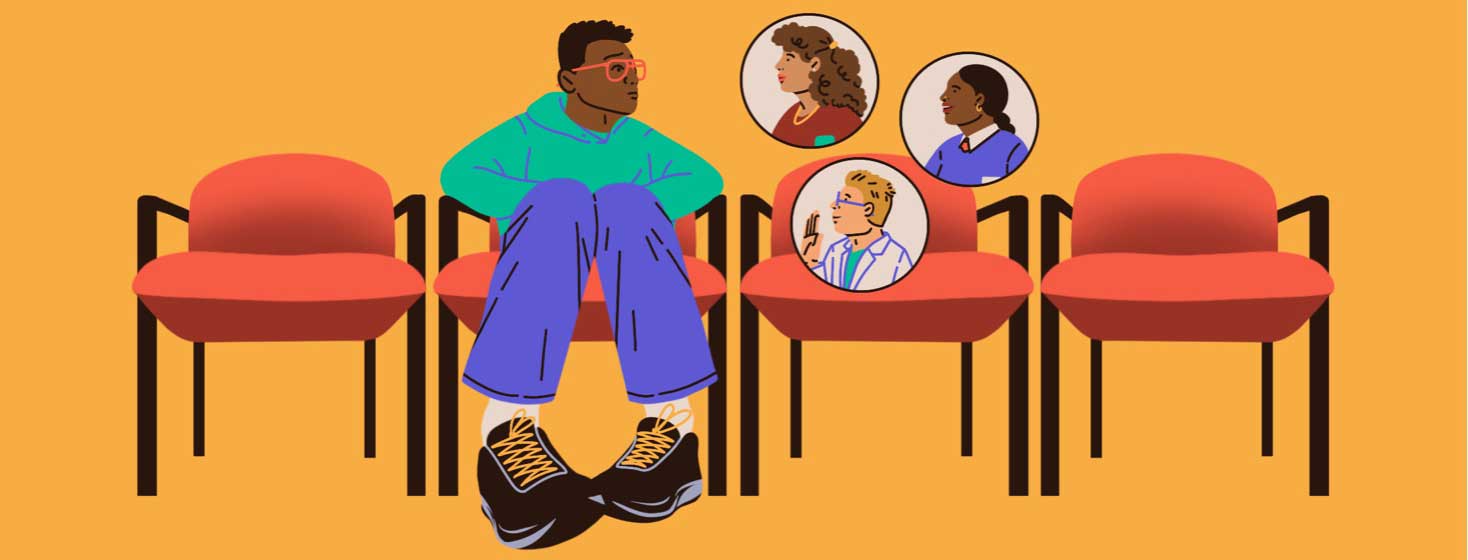Finding a Support Person for Doctor Appointments
People with chronic health conditions often face complex treatment plans and multiple doctor visits. Brain fog, fatigue, and problems concentrating are frequent side effects too.
That is why medical experts often recommend you bring someone with you to doctor’s appointments. This extra person can help you remember questions, explain how your rare disease impacts your life, and take notes for you to use later.
However, not everyone has a close friend or family member available to support them in this way. Nearby family may be older and in frail health. Working-age friends may not be able to take time off to attend appointments. Your partner may be immune-compromised and need to avoid going into hospitals and clinics. Or your family or friends may disagree with your choices about your healthcare.
One of our community members recently asked a good question: "Where do you find a person to go with you and support you during doctor’s appointments if you don’t have a friend or family member who can do that?"
In response, we asked this question of several community members who are doctors, nurses, and medical school students. Keep reading to learn about their suggestions.
Ask your healthcare team for advice
Depending on your condition, the clinic or hospital where you receive treatment may offer this kind of support. The person assigned to you may be called a social worker, case manager, or patient navigator.
These staff members usually do not sit in on a doctor’s appointment, but they may follow a patient for long periods of time. They can offer help such as:
- Setting up appointments and referrals
- Coordinating care between doctors
- Getting copies of records
- Navigating insurance claims and denials
- Coordinating new prescriptions and refills
This kind of support frees you to focus on your appointments and self-care. These professionals may even be able to help you prepare for appointments or speak to your doctor if you feel you are not heard.
You may also ask your doctor if they would allow you to have someone in the appointment virtually by making a video call during your appointment.
Call a local medical school
There are 156 accredited medical schools and 38 accredited osteopathic medicine (DO) colleges in the United States. If you happen to live close to one of these schools, you may be able to find a support person to go to doctor’s visits with you.1,2
Medical students may need to perform a certain number of hours of volunteer work, and helping you with appointments may qualify. If you live close to a 4-year university, the pre-med department may be able to link you to a student club with volunteers.
Call the school’s student affairs department to find out which organizations on campus exist and if you qualify for help. You can also ask your doctor if they can help connect you to a nearby medical school.
Hire a professional case manager
If your healthcare team or a local medical school does not provide a case manager for free, you may be able to hire a professional case manager. The Commission for Case Manager Certification offers a directory of certified case managers working in the United States, US territories, US Armed Forces, and Canada.3
Find local support groups
You may be able to find someone to help at a local support group for people living with your rare disease. One advantage is that these people are likely to understand your needs and be familiar with the vocabulary and treatments.4
However, you should use this option with caution. You will be giving someone else access to your most personal information, including health, financial, and residence information.4
Get help online
There are several online services that link people to support services and new friends. Three well-known ones are:
- Caring.com
- Care.com
- RentAFriend.com
Like befriending someone in a local support group, there are potential dangers to this method. Unlike someone who works for your doctor or goes to a medical school, these people may not be bound by any professional ethics that require them to keep your information private. And people from these services may not have any expertise in your rare disease, so their use to you may be limited.
Have you ever needed a support person outside your close circle of friends and family? How did you handle it? Share with us in the comments below!

Join the conversation